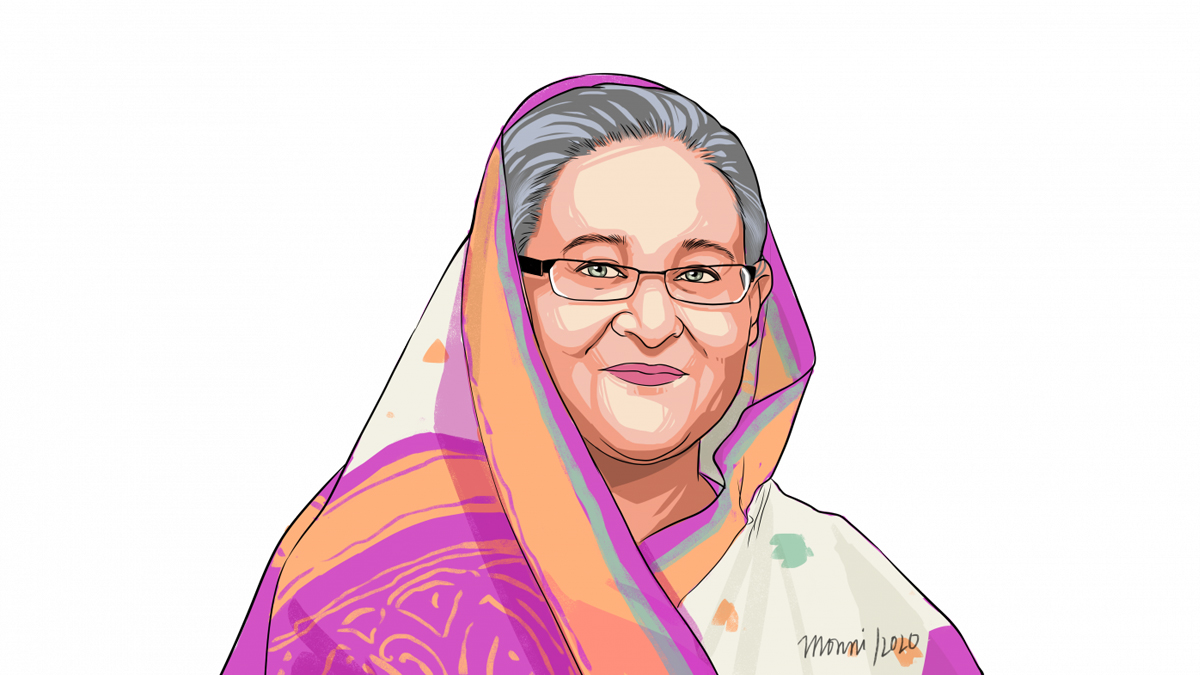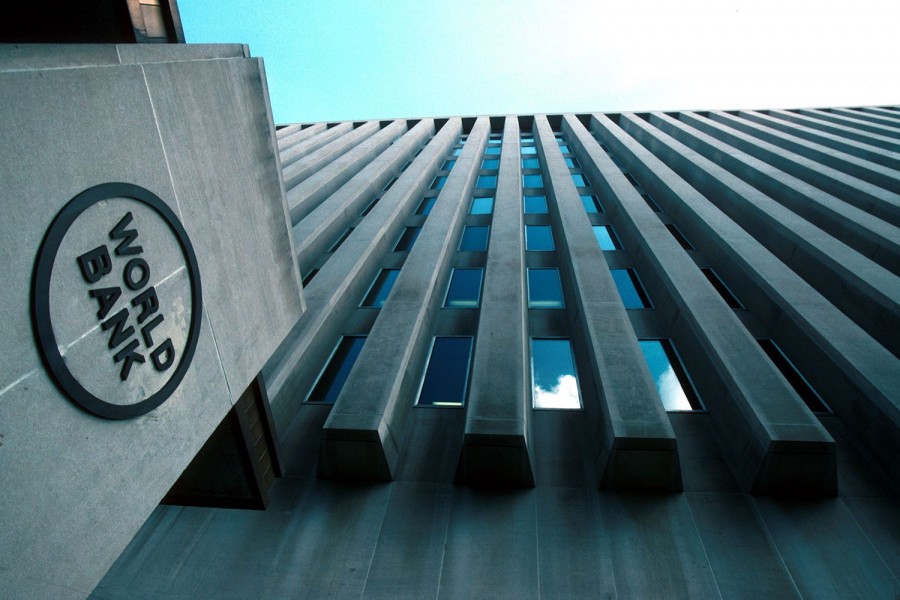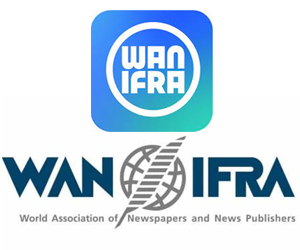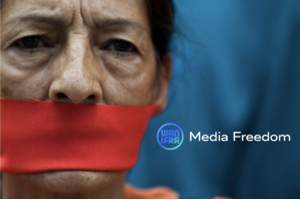Bangladesh
Bangladesh now appears as a ‘development miracle’: PM
Published
4 years agoon

Prime Minister Sheikh Hasina today placed a proposal in the Jatiya Sangsad (JS) to hold a special discussion on the occasion of the Golden Jubilee of the country’s independence, pledging to take Bangladesh to a dignified position by building it as a developed and prosperous country.
“In this historic moment of observing the golden jubilee of the country’s independence, our commitment will be to take Bangladesh to a dignified position on the world stage by transforming it into a “Sonar Bangla” free from poverty and hunger, repression and discrimination, and a developed and prosperous country, overcoming all the challenges, as envisioned by Father of the Nation Bangabandhu Sheikh Mujibur Rahman,” she said.
The Leader of the House moved the proposal under Section 147 of the Rules of Procedures in the 15th session of the 11th parliament.
At the beginning of the day’s sitting, President Abdul Hamid gave a commemorative speech marking the golden jubilee of the country’s independence.
Speaker Dr Shirin Sharmin Chaudhury chaired the sitting.
In the proposal, the Prime Minister said, “The parliament opines that the golden jubilee celebration of the country’s independence in 2021is a glorious chapter in the national life of the Bangalees. Bangladesh is marching forward at irresistible speed. Bangladesh now appears as a “development miracle” in the whole world arena.”
She told the parliament that that the country’s independence was achieved following the path of the Language Movement from 1948 to 1952, six-point of 1966, mass uprising of 69 under the leadership of the all time best Bangalee and Father of the Nation Bangabandhu Sheikh Mujibur Rahman, his historic March 7 speech, March 25 genocide, declaration of the independence by Bangabandhu in the early hours of March 26, formation of the Mujibnagar government on April 17 and the sacrifice of 3 million of martyrs and 200,000 mothers and sisters.
The Prime Minister said that the final victory was achieved on December 16, 1971 with the surrender of the Pakistani army.
The Father of the Nation formulated the country’s constitution after returning to the country on January 10 in 1972 and he delivered a speech in Bangla in the United Nations on September 25 in 1974.
The Prime Minister also said that during adoption and implementation of various plans to rebuild the war-ravaged country, darkness descended on the national life on August 15, 1975 as the country’s president and Father of the Nation along with most of his family members were assassinated.
She added that the four national leaders were assassinated inside the prison, power was seized illegally and the constitution was shattered through military decree while democracy and the rule of law were ruined.
Returning home from exile on May 17 in 1981 as elected the President of the Awami League, she said, “I engaged myself in the struggle of restoring democracy and the rule of law alongside ensuring the people’s rights for vote and food.”
After assuming office in 1996, Sheikh Hasina said that they had tried the assassins of Bangabandhu while the trial of the war criminals was initiated.
Bangladesh has attained the recognition of a developing country coming out of the least developed country (LDC) status through implementation of the “Vision 2021”, she added.
The Prime Minister in her proposal said that “Digital Bangladesh” announced in 2008 is now a reality.
“Success has been achieved in every field of human resource development such as reduction of poverty, attainment of food self-sufficiency, 100 percent electrification across the country, construction of houses for nine lakh homeless people, social security activities, women’s education and empowerment, skill in disaster management, student stipends and prevention of maternal and child mortality,” she continued.
Every economic index such as economic growth, remittance and reserve has witnessed robust growth while Bangladesh has ranked 41st in the world economy, she said.
The Prime Minister in her proposal said that the Delta Plan 2100 has been formulated to deal with the adverse effects of climate change.
She said the incentive package announced to overcome the crisis arising out of the Coronavirus pandemic has kept the country’s economy moving.
The construction of metro rail, Bangabandhu Sheikh Mujib Karnaphuli tunnel and the Padma Bridge by own finance have proved Bangladesh’s capability in the world, she opined.
“Demarcation of maritime boundaries with India and Myanmar and launching of Bangabandhu satellite in space have added a unique milestone to the triumph of Bangladesh’s success,” she said.
Mentioning that the center point of parliamentary democracy is the Jatiya Sangsad, Sheikh Hasina said that the parliament has been playing an effective role in fulfilling aspirations of the people by ensuring transparency and accountability of the government.
You may like
Bangladesh
Bangladesh’s Press at a Crossroads: Between Promises of Reform and the Shadows of Repression
Published
6 months agoon
August 14, 2025
By Md Mojahidul Islam Dheow
Bangladesh’s press is at a crossroads. A year after the mass uprising of 2024 promised a fresh dawn for the country’s long-troubled media, journalists still move under a heavy cloud of political, institutional, and psychological pressure. Across the nation, more than 250 cases have been filed against reporters in the last 12 months—not all for crimes of substance. Some are clear attempts to stifle critical reporting; others stem from something as ordinary as a social media post. The message is unmistakable: those who challenge authority face serious consequences.
Legal reform has offered a glimmer of hope with the newly debated Section 173A of the CrPC, 1898, which allows an accused to be discharged during investigation if a high-ranking police supervisor finds insufficient evidence. But the question remains: will this tool be used impartially—or selectively, to shield the powerful and punish dissenters?
The dangers facing journalists were made starkly clear on August 7, when Asaduzzaman Tuhin was killed while on duty. Just a day earlier, Anwar Hossain was assaulted while reporting on extortion at a Gazipur CNG auto-rickshaw stand. These incidents are not isolated—they are part of a pattern of violence and intimidation aimed at silencing the press.
Even the newly crafted Cyber Security Ordinance (CSO) 2025—intended to replace repressive predecessors like the Digital Security Act (DSA) 2018 and the Cyber Security Act (CSA) 2023—retains troubling elements. While some contentious sections have been removed, Section 42 still allows the use of repressive tools drawn from the ICT Act 2006, the Evidence Act 1872, and the CrPC. Vague phrases such as “public confusion,” “threats to national security,” and “anti-state acts” remain undefined, enabling broad crackdowns on civil liberties, journalism, and political opposition.
Beyond the legal framework lies a deeper crisis. Corporate influence and editorial compromises have long weakened investigative journalism in Bangladesh. The media’s role as a pillar of democratic accountability has eroded, with many outlets beholden to owners’ political and commercial interests. With no substantial institutional reform since the change in government, the press remains vulnerable to regulatory harassment, licensing obstacles, and punitive taxation whenever coverage strays from the “approved” line.
Two proposed reform measures—the Journalists’ Protection Ordinance 2025 and the National Media Commission Ordinance 2025—once promising, are stalled in bureaucratic limbo. The “one house, one media” policy, intended to prevent individuals or organizations from owning multiple outlets, remains unrealized despite the Media Reform Commission’s advocacy.
Even the Bangladesh Press Council risks becoming yet another instrument of state control unless its mandate is reimagined to prioritize journalist protections. Political divisions within journalist unions and media organizations further weaken any unified stance for press freedom. Ownership patterns skew licensing and content toward vested interests, while dissenting voices are punished through regulatory harassment or punitive audits. Inside newsrooms, self-censorship grows as fear of legal trouble and professional retaliation suppresses candid reporting. Whistleblowers remain silent, and investigative journalism is increasingly replaced by risk-averse coverage.
What Bangladesh needs is a national framework for self-regulation that binds all outlets: an internal editorial code of conduct, a grievance redressal mechanism, anti-harassment policies, and straightforward complaint resolution processes. A transparent, independent media ombudsman should adjudicate defamation claims and public complaints. Only with genuine independence, accountability, and a clear commitment to journalist safety can the industry rebuild trust and integrity.
Beyond reform, there is an urgent need for immediate protection and practical empowerment of reporters in the field. The proposed Journalists’ Rights Protection Ordinance 2025 aims to codify such protections, with penalties of up to five years’ imprisonment and substantial fines for violence against journalists. It would:
(a) defend journalists from violence, threats, and harassment;
(b) shield sources and protect newsroom independence;
(c) guarantee the right to work without fear;
(d) ensure safe reporting environments within media organizations;
(e) safeguard good-faith reporting; and
(f) establish clear complaint, investigation, and trial procedures.
The ordinance mandates that fines can be directed as compensation to the harmed journalist and holds both individuals and, when applicable, organizations accountable for failing to prevent or address abuses.
If implemented effectively, it could mark a turning point. But enforcement requires a judiciary capable of handling cases efficiently and free from political influence. Authorities must be bound by law to protect journalists, safeguard newsroom neutrality, and defend those who publish information in the public interest.
The current moment is pivotal. Real reform demands more than laws on paper—it requires political courage, institutional independence, and a mature democratic culture. Journalists must unite beyond political divides, media owners must shed partisan agendas, and the state must commit to protecting the very people who hold it accountable.
Time is slipping away. Each delay erodes public trust, silences more journalists, and buries more truths. If Bangladesh is to have a democracy worthy of the name, it must build a press that is free, secure, and independent—not as an ornament of democracy, but as its beating heart.
Bangladesh
Investigation: Hasina’s ‘Shoot Directly’ Order and Its Deadly Consequences
Published
7 months agoon
July 25, 2025
On the morning of July 27, 2024, Sheikh Hasina stood silently at the podium of the National Institute of Traumatology and Orthopedic Rehabilitation (NITOR), commonly known as Pongu Hospital, in Dhaka.
For nearly 14 seconds during her eight-minute emotional speech, the former prime minister remained silent. A visible pain marked her face, reflecting the weight of the bloodshed that had occurred since July 16, when police forces fatally shot Abu Sayed in Rangpur with lethal weapons. That day, five more lives were lost amidst violence in Dhaka and Chattogram.
By the time Hasina addressed the crowd at NITOR, the death toll across the last two weeks had reached at least 162, many of whom had been shot with military-grade weapons by state security forces, according to The Daily Star’s investigations.
“I seek justice from my fellow citizens. What crimes have I committed to deserve this?” 77-year-old Hasina asked after visiting some of the injured at the hospital.
“I don’t want any mothers to lose their children like this. I’ve lost my parents; I know the pain… So many lives have been lost, so many families shattered. Who is responsible for all this?…” she began, but then, overcome with emotion, she left the stage in tears, unable to finish her words.
This heartfelt public address sharply contrasts with what was happening behind the scenes. An investigation by The Daily Star reveals that a state-sponsored machinery for mass violence had already been put into motion.
Just nine days earlier, on the evening of July 18, 2024, a phone rang inside the ousted prime minister’s residence, Gonobhaban, and Sheikh Hasina answered. On the line was Sheikh Fazle Noor Taposh, then the mayor of Dhaka South City. What followed was a startling disclosure of a lethal plan.
“We are now doing things differently. We are capturing photos with drones, and sending helicopters to several places,” Hasina told Taposh.
“Wherever they [the state forces] see gatherings, from the sky… I am getting it done from above, already started in several areas… already underway,” she said, while Taposh repeatedly pressed for launching a large-scale arrest campaign.
Bangladesh
WB to provide $250m loan to modernise five public sector functions
Published
8 months agoon
June 15, 2025
The World Bank (WB) would provide US$250 million funds to facilitate improving transparency, accountability, and efficiency of some key government agencies in Bangladesh.
FE
The WB board on Saturday approved the loan to support the ongoing reform initiatives of the interim government, aimed at modernising crucial public sector functions.
These are essential for improving data transparency, domestic revenue mobilisation, public investment management, public procurement, and financial oversight, according to a statement issued on Saturday.
Under the Strengthening Institutions for Transparency and Accountability (SITA) project, five key government agencies – the Bangladesh Bureau of Statistics (BBS), the National Board of Revenue (NBR), the Planning Division, the Bangladesh Public Procurement Authority (BPPA), and the Office of the Comptroller and Auditor General (CAG) – would reform their operational activities.
The project is expected to streamline operations and improve service delivery within the five agencies and enhance access to reliable public statistics, crucial for transparent and accountable decision-making and policy formulation.
It will help modernise tax administration and increase tax compliance, thereby improving much-needed revenue mobilisation and fiscal sustainability.
The WB loan will also help improve the efficiency and accountability of public spending, ensuring that resources are utilised effectively for the benefit of all citizens.
It will develop a second generation of electronic government procurement (e-GP) and broaden its scope. The project will also help strengthen and digitise public audit.
Gayle Martin, the World Bank’s Interim Country Director for Bangladesh, on Saturday said: “The investment will leverage digitisation of business processes to help improve transparency and reduce corruption, by supporting Bangladesh in modernising public institutions capable of serving an emerging economy.”
This project will help improve the quality and accessibility of public services and thus enhance public trust in government institutions, she added.
According to the statement, the Bangladesh government and the WB are also preparing a development policy credit scheduled for the bank’s board discussion later this month.
Such credit is expected to support transparency and accountability in domestic revenue mobilisation, the banking sector, data production and dissemination.
Souleymane Coulibaly, World Bank Lead Country Economist and Task Team Leader for the project, said: “This project and the proposed development policy credit would be complementary and provide the government both the necessary hardware and software for improving public financial management and public service delivery.”

From Confusion to Clarity: Dheow’s Book Helps Users Master ChatGPT Conversations

Pre-Orders Open for Mojahidul Islam’s Latest Computer Book ‘AI Shikhun, Taka Gunun’

Bangladesh’s Press at a Crossroads: Between Promises of Reform and the Shadows of Repression










